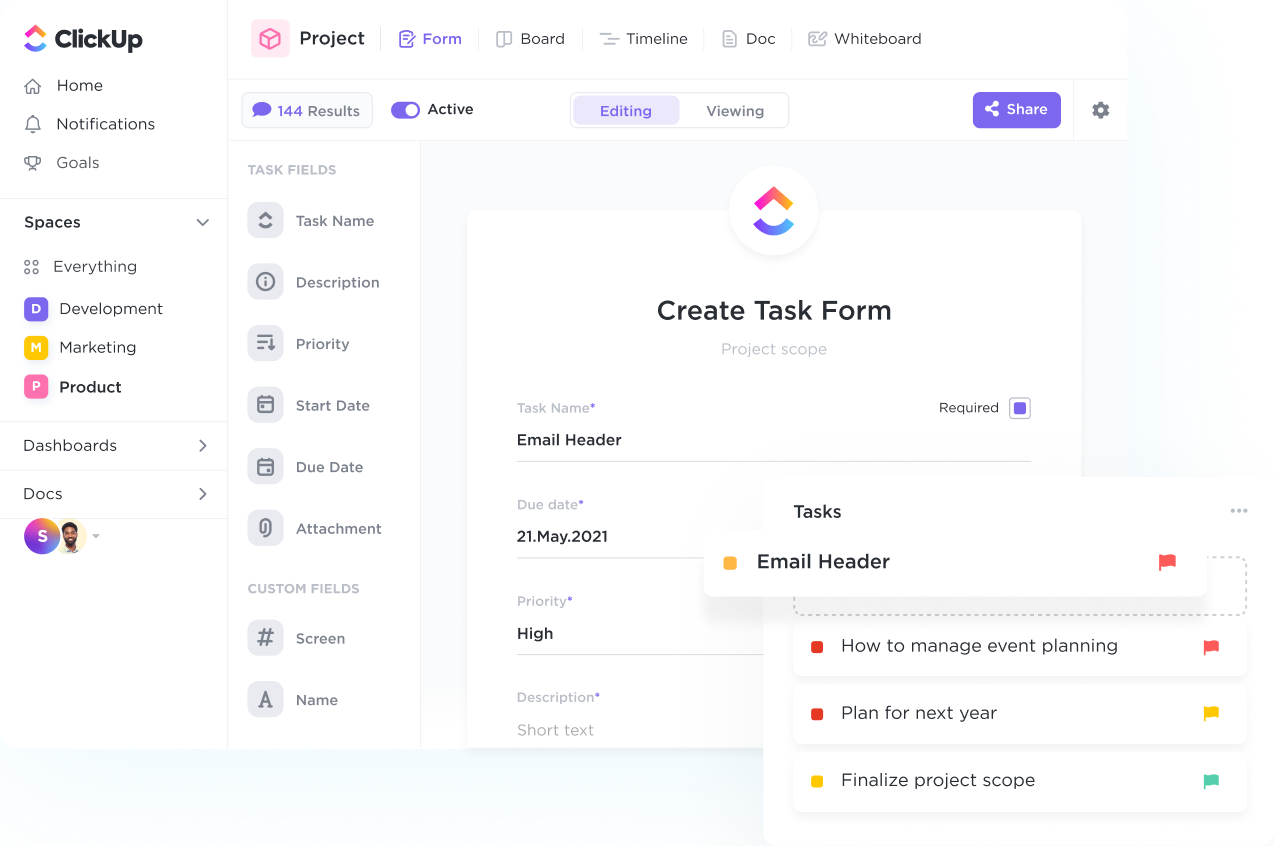Onboard customers and collect info in a snap.
Streamline your intake process, organize response data, and automatically create tasks with custom branded Forms powered by conditional logic.

Optimize your bookkeeping workflow with ClickUp's customizable CRM system designed specifically for bookkeepers. Streamline client communications, manage projects efficiently, and track important deadlines all in one place. Say goodbye to scattered data and hello to organized success with ClickUp for bookkeepers.
Free forever.
No credit card.
Trusted by the world’s leading businesses
Streamline your intake process, organize response data, and automatically create tasks with custom branded Forms powered by conditional logic.

Create your ideal system to store and analyze contacts, customers, and deals. Add links between tasks, documents, and more to easily track all your related work.

Bookkeepers can use a CRM to capture leads from various sources, assess their potential value based on predefined criteria, and nurture them through the client acquisition process. This helps bookkeepers focus on converting promising leads into long-term clients.
By leveraging a CRM, bookkeepers can analyze customer behavior patterns and preferences, gaining valuable insights to tailor their services effectively. Performance dashboards allow them to monitor key metrics in real-time, enabling data-driven decision-making to enhance customer satisfaction and retention.
CRMs provide bookkeepers with a centralized database to store and manage client information efficiently. By tracking interactions and mapping relationships between contacts within an account, bookkeepers can personalize their services, improve client communication, and implement targeted account-based strategies.
Bookkeepers can streamline their processes by automating routine tasks and workflows through a CRM. From sending reminders for upcoming deadlines to automating approval processes, workflow automation ensures efficiency, consistency, and accountability in managing financial tasks and client engagements.
CRMs offer internal messaging platforms and centralized document management systems that facilitate seamless communication and collaboration among team members. Bookkeepers can share important documents, exchange information in real-time, and work together effectively to deliver high-quality services to their clients.
Key features in CRM software that benefit bookkeepers include centralized client information, task and appointment scheduling, invoicing and payment tracking, customizable reporting, and integration with accounting systems for seamless financial data management.
CRM software can help bookkeepers streamline their workflow and improve productivity by centralizing client information, automating invoicing and expense tracking, generating financial reports, and providing insights into client interactions for more personalized service.
Yes, there are CRM software integrations and plugins available that allow bookkeepers to seamlessly connect their accounting software, automate data syncing, and streamline reconciliation processes, improving efficiency and accuracy in financial management.